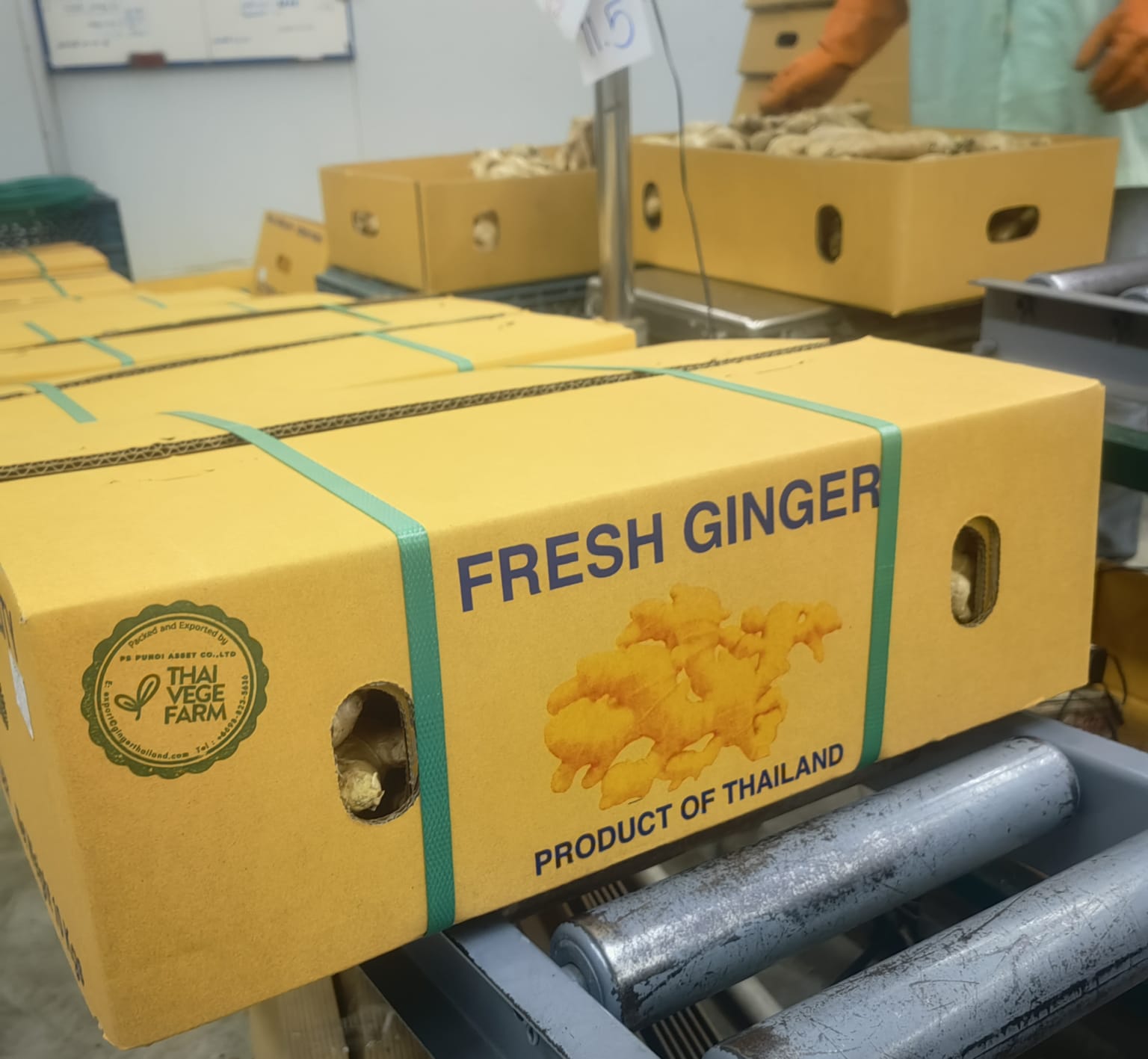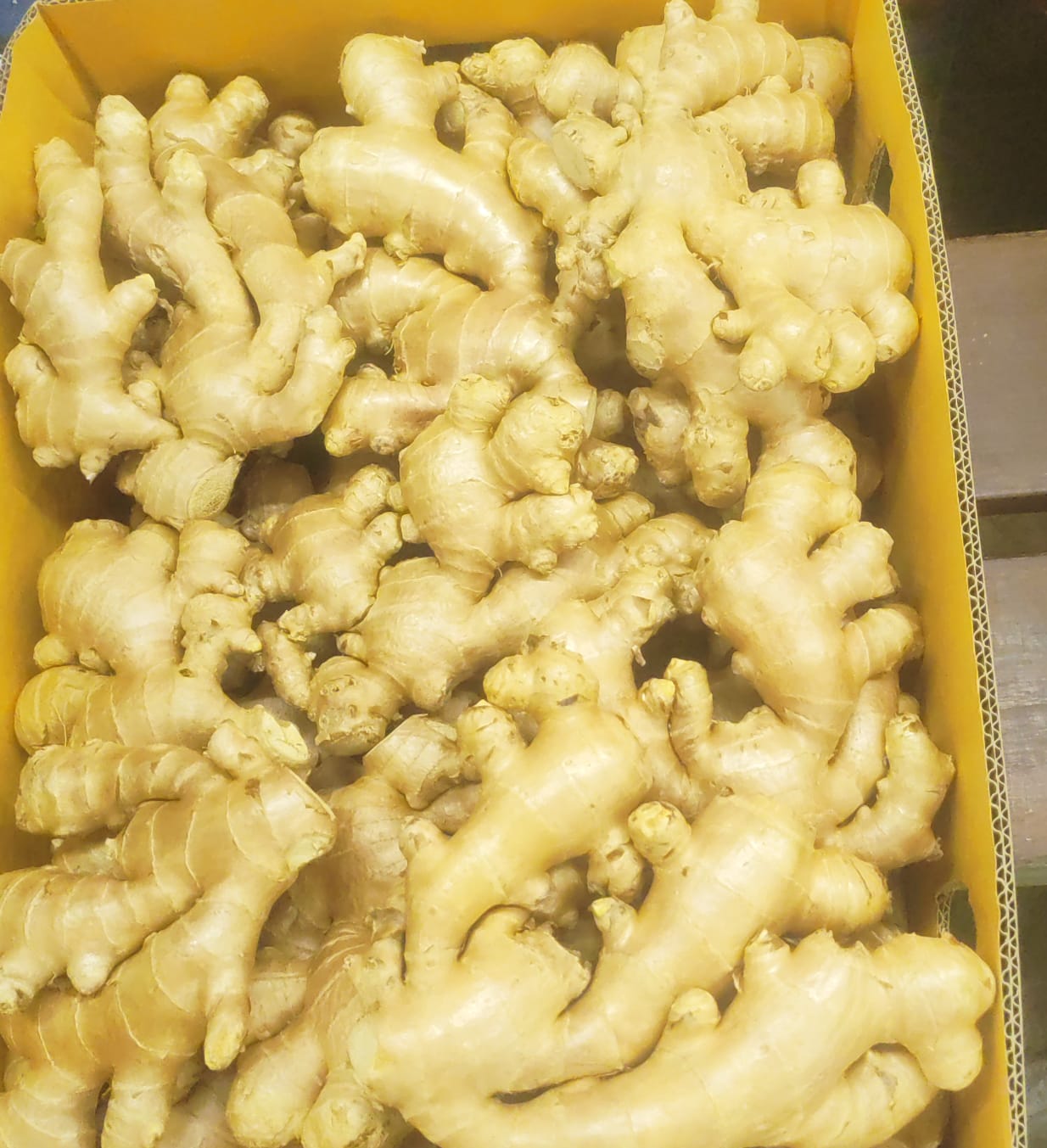Thailand Fresh Ginger for the World

Thailand's ginger industry stands as a vibrant cornerstone of the country's agricultural landscape, deeply rooted in both tradition and innovation. With a rich cultural heritage that extols the virtues of this versatile root, Thailand has long been renowned for its superior quality fresh ginger. From the lush fields where it is cultivated to the bustling markets where it is traded, ginger holds a special place in Thai culture and cuisine. This article delves into the multifaceted world of Thailand's ginger industry, exploring its historical significance, health benefits, cultivation practices, global export prowess, culinary uses, sustainability efforts, and future prospects. Join us on a journey through the fragrant fields and bustling markets that make Thailand a leading supplier of fresh ginger to the world.
Introduction to Thailand's Ginger Industry
Thailand's ginger industry is as spicy as the ginger itself! Known for its vibrant culture and rich agricultural traditions, Thailand has long been a key player in the global ginger market.
The Significance of Ginger in Thai Culture
Ginger isn't just a tasty addition to Thai cuisine – it's deeply rooted in Thai culture and traditional medicine. From soothing stomach upsets to adding a zing to curries, ginger holds a special place in the hearts (and stomachs) of the Thai people.
Historical Overview of Ginger Farming in Thailand
Ginger farming in Thailand dates back centuries, with farmers passing down their knowledge from generation to generation. The country's fertile soil and favorable climate have made it a prime location for growing this flavorful root.
Health Benefits of Fresh Ginger
Fresh ginger isn't just delicious – it's a powerhouse of health benefits too! Let's dive into why this humble root is a superstar in the world of natural remedies.
Medicinal Properties and Traditional Uses
Thai traditional medicine has long embraced the healing properties of ginger, using it to treat everything from colds to digestive issues. Its anti-inflammatory and digestive benefits have made it a go-to remedy in households across Thailand.
Scientific Research on Ginger's Health Benefits
Modern science has also taken note of ginger's impressive health benefits. Studies have shown that ginger contains compounds with antioxidant and anti-inflammatory properties, making it a valuable addition to a healthy diet.
Cultivation and Harvesting Practices in Thailand
Growing ginger is an art form in Thailand, with farmers utilizing traditional techniques and modern practices to ensure a bountiful harvest of this versatile root.
Growing Conditions and Soil Requirements
Thailand's tropical climate and well-drained soil create ideal conditions for ginger cultivation. Farmers carefully select the right soil type and provide ample sunlight and water to ensure healthy growth.
Harvesting Techniques and Seasonality
Harvesting ginger is a labor-intensive process that requires precision and care. In Thailand, ginger is typically harvested by hand to preserve its quality. The root is harvested at different stages depending on its intended use, with different seasons offering varying yields.
Thailand's Role as a Global Ginger Exporter
When it comes to ginger exports, Thailand is a major player on the world stage. Let's take a closer look at how Thailand is spicing up the global market with its high-quality ginger.
Market Trends and Export Data
Thailand's ginger exports have been on the rise, driven by increasing demand from international markets. The country's reputation for producing top-quality ginger has positioned it as a key player in the global ginger trade.
Key Export Markets and Distribution Channels
Thailand's ginger finds its way to markets around the world, with key export destinations including countries in Asia, Europe, and beyond. Through efficient distribution channels and strategic partnerships, Thailand continues to solidify its position as a leading ginger exporter.
Culinary Uses of Thai Ginger in International Cuisine
Ginger in Thai Cooking
When it comes to Thai cuisine, ginger plays a starring role in adding that zesty and aromatic flavor. Whether it's in a spicy curry, a tangy stir-fry, or a refreshing Tom Yum soup, Thai ginger brings a unique kick that makes your taste buds do a happy dance.
Ginger's Versatility in Global Cuisine
Thai ginger isn't just limited to Thai dishes. It's a versatile ingredient that has made its way into international cuisines around the world. From being a key player in Indian curries to adding a hint of warmth in Chinese dishes, ginger's spicy-sweet punch knows no borders.

Sustainability and Challenges in Thailand's Ginger Production
Environmental Impacts of Ginger Farming
While ginger production in Thailand brings flavors to tables worldwide, it also comes with its environmental footprint. Issues like soil degradation, water usage, and pesticide use pose challenges to the sustainability of ginger farming in the region.
Challenges Faced by Thai Ginger Farmers
Thai ginger farmers face hurdles in maintaining crop quality, dealing with market fluctuations, and combatting pests and diseases. Despite their dedication, they navigate a complex landscape to ensure a steady supply of fresh ginger to meet global demand.
Innovations and Future Trends in the Thai Ginger Market
Technological Advancements in Ginger Farming
To tackle sustainability challenges and enhance productivity, Thai ginger farmers are turning to innovative farming practices. From precision agriculture to organic farming methods, technology is shaping the future of ginger production in Thailand.
Emerging Opportunities and Market Developments
As the world's appetite for Thai ginger grows, new market opportunities are on the horizon. From expanding export markets to the rising demand for organic ginger, the Thai ginger industry is ripe with potential for growth and development in the coming years. As Thailand continues to uphold its reputation as a global leader in ginger production and export, the future of the country's ginger industry shines bright with promise. From its storied past to its modern-day innovations, Thailand's dedication to cultivating high-quality ginger remains unwavering. As consumers around the world savor the distinctive flavor and myriad health benefits of Thai ginger, the industry's commitment to sustainability and growth ensures that this humble root will continue to captivate taste buds and nourish bodies for generations to come. Thailand's fresh ginger truly stands as a shining example of agricultural excellence, showcasing the country's enduring passion for cultivating nature's gifts.